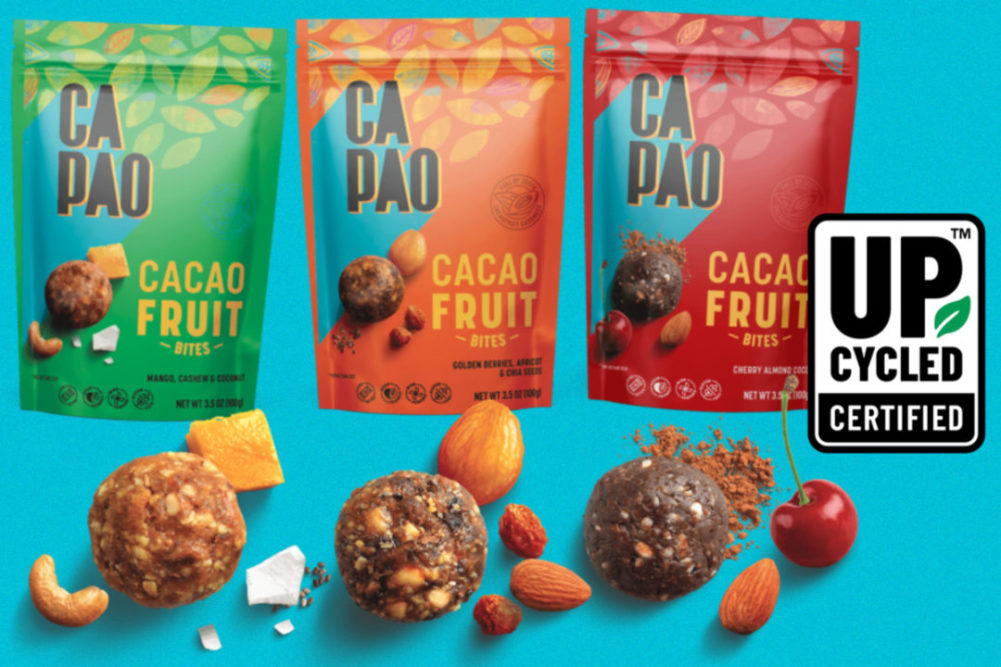 KANSAS CITY — The progress made by upcycled food and ingredient manufacturers may be underappreciated. Rarely has a food and beverage trend not born out of an immediate crisis generated such broad and noteworthy advocacy so quickly. Part of the reason is it has accelerated in the shadow of the COVID-19 pandemic, an event that turned upside down many longstanding food consumption trends.
KANSAS CITY — The progress made by upcycled food and ingredient manufacturers may be underappreciated. Rarely has a food and beverage trend not born out of an immediate crisis generated such broad and noteworthy advocacy so quickly. Part of the reason is it has accelerated in the shadow of the COVID-19 pandemic, an event that turned upside down many longstanding food consumption trends.
It was less than three years ago that the Upcycled Food Association was formed and only a year ago that the Upcycled Certification Standard was formally approved. Today, more than 140 products and ingredients featuring the Upcycled Certified logo are on the market. The figure is minuscule when placed in the context of the US food and beverage marketplace, but the certification and rapid growth have prompted market researchers to identify and highlight sustainability and upcycling as leading trends in 2022.
Sustainability led Innova Market Insights’ list of consumer trends heading into 2022. The market researcher said the top two environmental actions consumers are taking when making food choices are reducing waste and eating in moderation. Lu Ann Williams, director of global insights for Innova Market Insights, said one of the biggest shifts being seen in the market is the health of the planet is now a top concern of consumers.
In its list of 2022 trends, the Kroger Co. iterated consumers continue to focus on the health of the planet by reducing waste with upcycled foods and ingredients, and Whole Foods Market specifically called out upcycling as a top 10 trend.
The trend has not gone unnoticed by food and beverage manufacturers large and small. Mondelez International’s SnackFutures business unit has supported the development of CaPao and Dirt Kitchen, brands utilizing upcycled ingredients. Barry Callebaut is working on extracting vanillin from hazelnut shells, and Nestle SA is exploring the use of coffee fruit, cocoa pulp and other byproducts of its own production processes to incorporate into new consumer products.
Venture capitalists are investing millions of dollars in upcycled food startups. ReHarvest Provisions, for example, a maker of single-serve smoothies formulated with rescued produce, recently raised $1.5 million in a seed funding round. Agua Bonita, a beverage maker that flavors its products with upcycled produce, raised $2 million in a pre-seed round, and Spudsy, a snack maker that uses imperfect sweet potatoes in its puffed snacks, raised $3.3 million.
Adding to the energy propelling the trend is a focus by states and municipalities to limit the amount of food waste that ends up in landfills. In California, for example, the state’s newly enacted organic waste reduction law requires the development of programs that allow consumers and businesses like restaurants and hospitals to ensure food waste is redirected and disposed of in a sustainable manner. Such regulations will create greater awareness around businesses focused on reducing food waste and may even create supply chains for some upcycled applications.
It may feel as if this pandemic will never end, and food and beverage manufacturers have little choice but to focus attention on managing supply chains and maintaining inventories. But the pandemic will end, and when that happens consumer demand for sustainable products is likely to expand the exciting opportunities already evident for manufacturers of upcycled food and ingredients.





